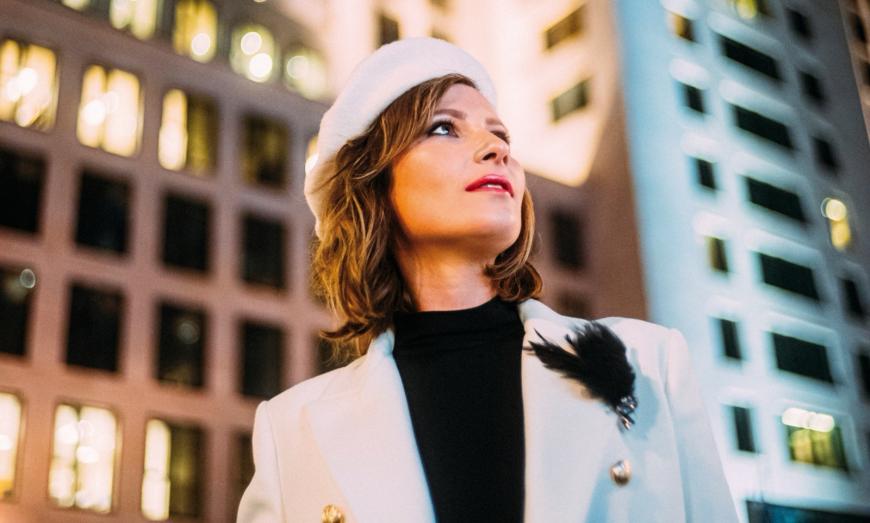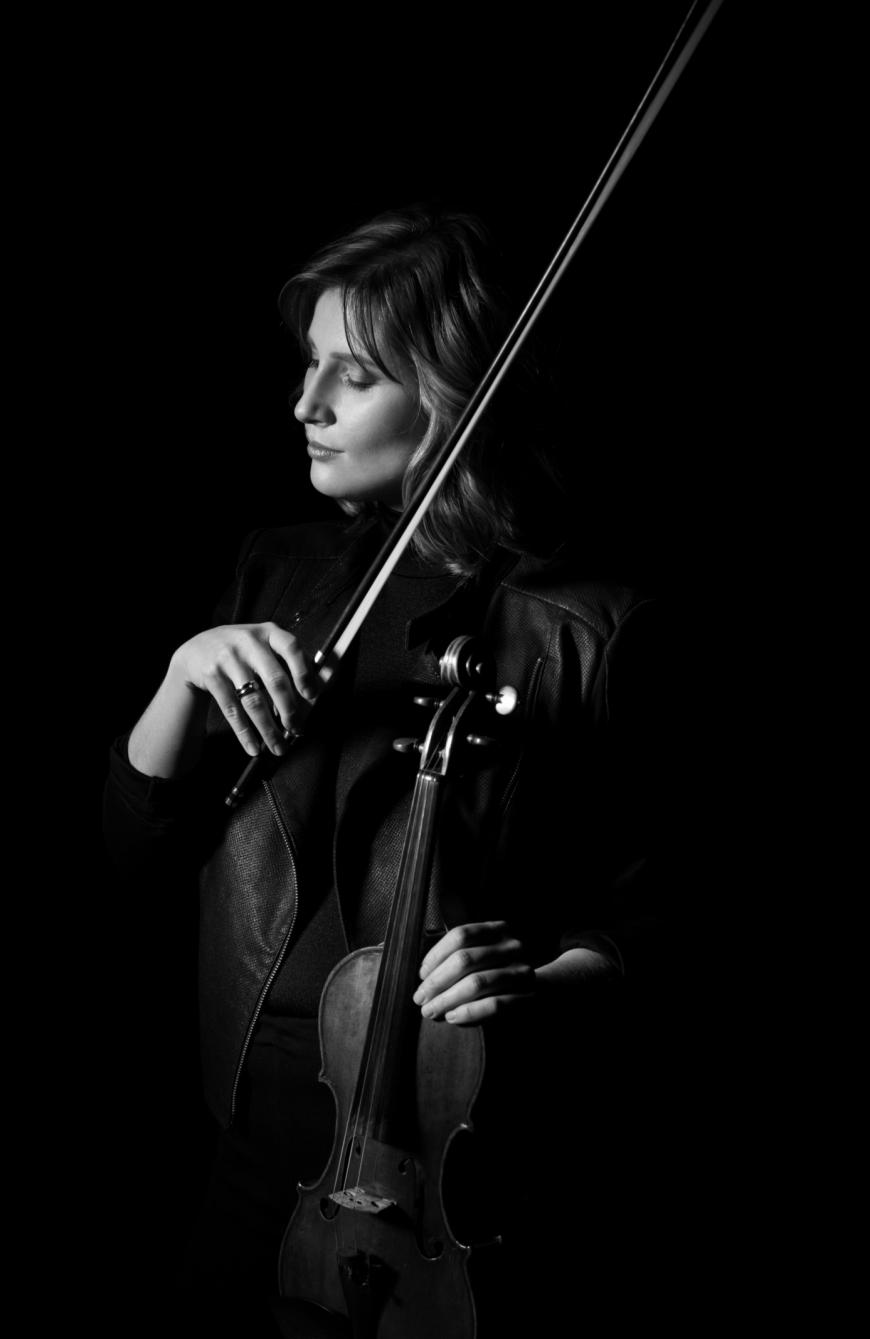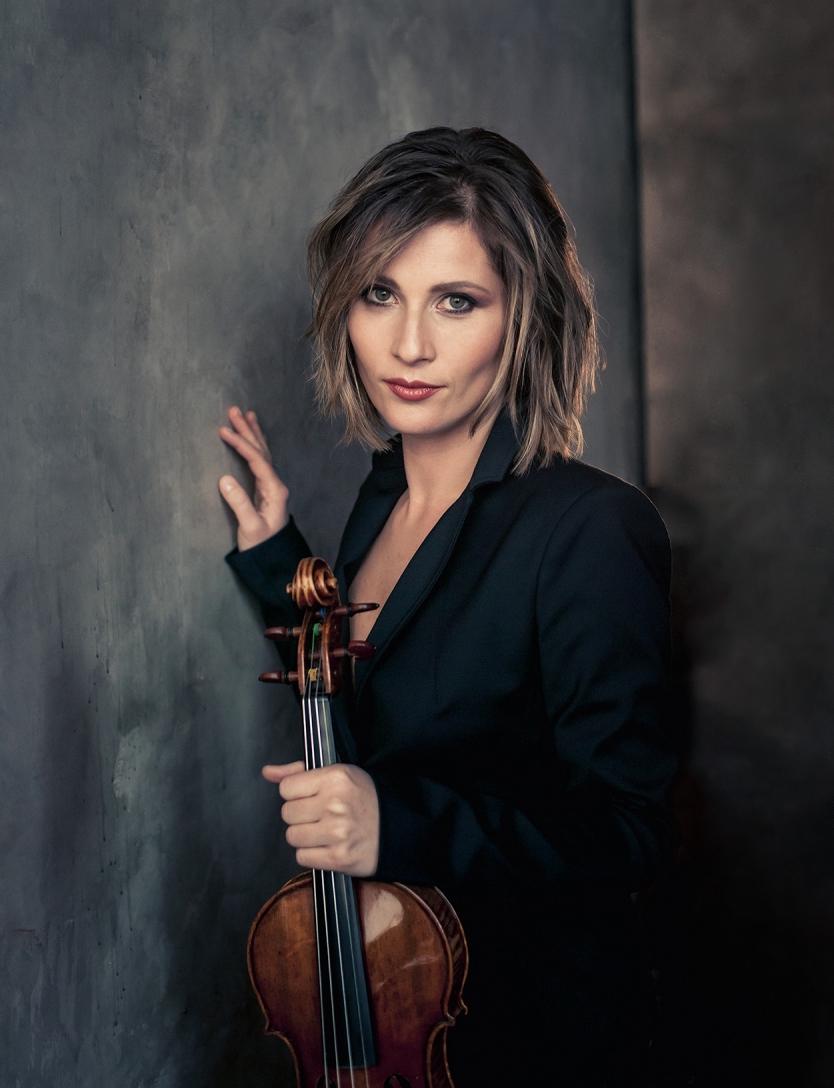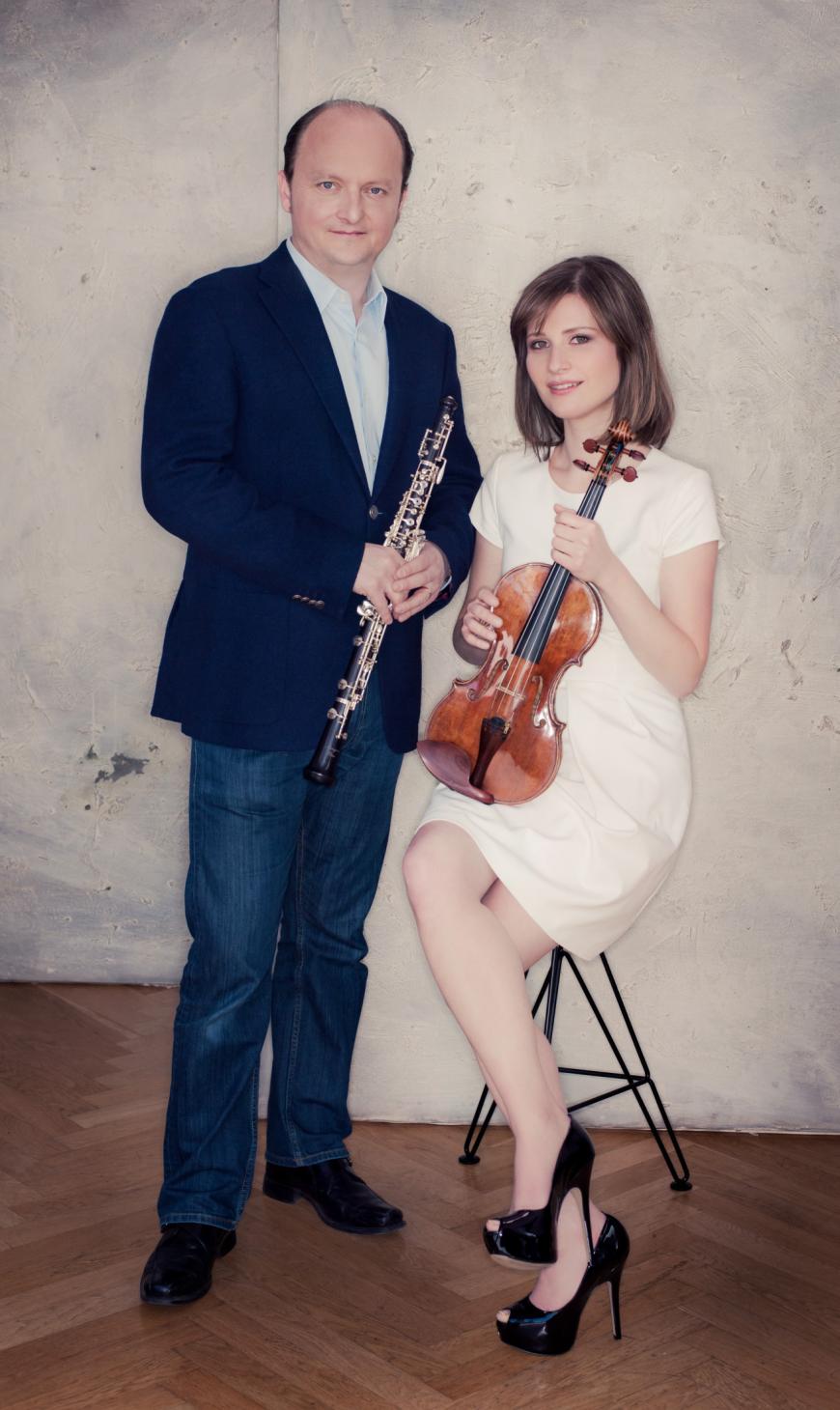
A major success at age 16, when she took second prize in the International Jean Sibelius Violin Competition, Lisa Batiashvili, now 45, has been riding high ever since. Audiences will have a number of chances to hear this exceptional violinist when she embarks on a three-concert California tour March 20–22.
With stops at Segerstrom Center for the Arts in Costa Mesa, McCallum Theatre in Palm Desert, and Los Angeles’ Walt Disney Concert Hall, Batiashvili will be performing with Esa-Pekka Salonen and the San Francisco Symphony in an all-Sibelius program. (Salonen conducted pre-tour performances of the program at Davies Symphony Hall March 14–16.)
Born to a family of musicians in Tbilisi, Georgia, Batiashvili began studying violin with her father at age 4. Leaving Georgia with her family in 1991 and settling in Germany, the young violinist went on to study at the Hochschule für Musik und Theater Hamburg. And after snagging the Sibelius prize as a teen, Batiashvili began concertizing regularly, with her schedule seemingly nonstop since then.

In the 2023–2024 season alone, she began a residency with the Berlin Philharmonic, performing at home and on tour with Kirill Petrenko and Daniel Barenboim. In addition, this season saw her performing chamber concerts with flutist Emmanuel Pahud and musicians from the Vienna Philharmonic, as well as with pianist Denis Kozhukhin. Batiashvili has also been touring with pianist Jean-Yves Thibaudet and cellist Gautier Capuçon, culminating in a performance last October at Carnegie Hall. Her latest recording for Deutsche Grammophon, Secret Love Letters, with Yannick Nézet-Séguin and The Philadelphia Orchestra, was released in August 2022.
Batiashvili has won a number of awards, including being named Musical America’s Instrumentalist of the Year in 2015, and in 2018, she was given an honorary doctorate from the Sibelius Academy. Not one to rest on her laurels, she formed the Lisa Batiashvili Foundation, an organization committed to supporting talented young Georgian musicians, in 2021. In addition, the foundation has sent 180,000 euros to 150 different musicians in Ukraine.
SF Classical Voice caught up with Batiashvili over Zoom from her home in Berlin, with topics ranging from her upcoming California tour and her working relationship with Salonen to her thoughts on art and politics.
You cite Finland as being vital to your career, and you have also worked quite a bit with one of Finland’s megastars, Esa-Pekka Salonen. How would you describe your musical relationship with him?
Finland has been an important country for me. Musically, it’s the first place in Europe I traveled to when I was a kid, [and] I had my biggest success [there] — second prize in the Sibelius Competition. Somehow, it just started there for me, the whole kind of active musical life. It was almost impossible to think you could do 40 concerts in a year, but it was fantastic. I started building my repertory and met so many fantastic musicians.
Finland is famous for special classical musicians — instrumentalists and many conductors. I’ve performed the [Sibelius Violin] Concerto with most of the Finnish conductors, and Esa-Pekka is probably the most fascinating and multitalented. He’s a composer [and has] such a brilliant mind. We performed for the first time in 2001, and our first Deutsche Grammophon recording [Echoes of Time] was in 2011.
It’s extremely fascinating to watch him rehearse [and] talk about music. He has an incredible, clear insight [into] everything he conducts. I think it’s also about the way he treats the soloists, how well he’s accompanying, but at the same time, he has a clear idea, especially with Sibelius’s music, how he wants it to sound. It’s probably the most important Finnish work for violin and is incredibly rich.
What are your thoughts on the Sibelius Violin Concerto, and do you ever tire of playing it?
Sibelius was a composer who was a violinist. It was his passion, but it was also somehow his pain because he never got to become a great violinist. But he was a passionate violinist. He put in all the most difficult things he could think of, especially in the third movement, [and] spent many years refining this concerto. The first version was much, much longer. He took out [things in] the work and made it even more perfect and more suitable for violin, and it became one of the major pieces of the violin repertory.
And no, I never tire of playing it. It’s very important, no matter what you’re playing, to have a vision of how you want the piece to sound. My imagination and expectation of how I want things to be, especially my own playing — I always work toward that vision that I can never achieve. I don’t think I am repeating something [when I’m playing it again] with another orchestra or conductor. I know it’s special when I’m with a great conductor or orchestra because it gives me new energy, new ideas, a new moment of collaboration. It’s always kind of a new adventure, and I discover something new each time.
What makes for good chemistry between a soloist and a conductor?
With conductors, it’s a relationship you build throughout the years. The case with me [is that] I’ve met many conductors in my life and have been so lucky to meet some of the best conductors [who are] my own age or older. Or even now, there’s a younger generation, and I’m becoming a soloist often older than the conductor. It’s a fascinating time we’re living in.
[These days] I can pick the conductor I want to play with, [and] coming back to a person you love working with is such a privilege. The conductor doesn’t always have to have the same opinion and same taste as you do, but when it happens, it’s a huge happiness onstage. It can be someone very different, but you find a special chemistry. It’s important to be open and also generous — from both sides.
You have to be generous in music, and you will be more flexible. You will have many more possibilities to find a common language with your colleagues. When you have this moment onstage where you feel generosity with a conductor, an exchange with each other, then it’s a very, very special moment. This is why it’s worth being a musician.

This season you’ve been in residence with the Berlin Philharmonic, as well as touring with the orchestra and Daniel Barenboim, who has had some health issues.
He’s been unwell, yes, but he’s incredibly strong mentally to keep himself still in good enough shape to conduct in Berlin. He and I will be performing the Brahms [Violin] Concerto in April with the orchestra. We will [also] have a concert in Georgia with the Berlin Philharmonic on May 1. I organized it to make it possible for my country to hear a great orchestra like this for the first time. Tickets were sold out in two or three hours because lots of people want to live this historical moment for Georgia.
It’s an incredible honor and joy to be in residence with the Berlin Philharmonic, not only [because] I’ve known [them] for many years and they’re phenomenal, but mix [that] with being with wonderful friends and incredible musicians and getting inspired by how they play. I am grateful for this moment to have so many opportunities.
You had vowed not to perform in Russia after the annexation of Crimea in 2014. What are your thoughts on the situation today, and should an artist be political?
I always thought that being nonpolitical for an artist is kind of not possible. Many people avoid being political, but if you are a person that has some principles, you have to be political as well. Know where you’re playing and who’s paying your fees. Politics is everywhere; it affects artistic life and culture. The thing about Russia attacking Georgia or Ukraine — absolutely nothing can justify that. There is no reason for me to perform in Russia. They’ve taken 25 percent of my country [between] 1990 and 2008.
[There was the] Crimea annexation and now this terrible war [in Ukraine]. In a way, in many cultures, culture is not independent but dependent on politics. Politicians, they get stronger and have excuses to do certain things because they are supported by people of high intelligence and talent. I think because of all this complexity of the situation in the world, culture cannot be completely independent of politics.

What about playing new music? Will there be more of that in your life?
Yes, I’m playing a new trio by Jörg Widmann. He’s a famous composer in Germany [and] composer-in-residence with the Berlin [Philharmonic]. I have done some premieres of new works and double concertos with my husband, [oboist] François Leleux; we had some written for us. New music is not the main part of my musical life, [but] it’s very important to perform new music that we can say something with. I wouldn’t play just any contemporary music [because] I really have to like it, and it doesn’t happen enough.
I started a foundation almost three years ago, and I have two young composers in the foundation. They’re also performers, [pianists Sandro Nebieridze] and Tsotne Zedginidze. Tsotne is 14 and has been writing since he was 8. He’s the Mozart of the 21st century. He has also written a piece for me and him, a violin sonata that we performed together. It was the first time he wrote for another instrument.
Where do you see yourself in the next five to 10 years?
I don’t know. I never know for how many years I will be performing on big stages with big orchestras; it depends on my physical condition. Other than that, Berlin is a city I want to explore more and stay longer. I’ve only lived here for eight months. I want to know the place better and also get closer to my home country, Georgia. It’s the place I always miss. During the pandemic, I was able to go there more often.
Other than that, I’m trying not to [envision] more than that. But most important is that we find more peace in the world. This is the biggest worry for me now. It’s everybody’s biggest worry. We’re more aware of the situation happening, and there’s so much we don’t know. It’s very destabilizing for me. I’m from a small country [that was] under terrible political pressure in Soviet times. I’m not like a Western person raised in peaceful surroundings.
For me, it was always important and kind of a worrying subject — conflicts, annexation — all these things my country went through. Now [we’re] coming to a point where we — the European Union and the U.S. — should not let all kinds of aggressive politicians take too much control over things. We should be very, very clear and strong and united against this.




